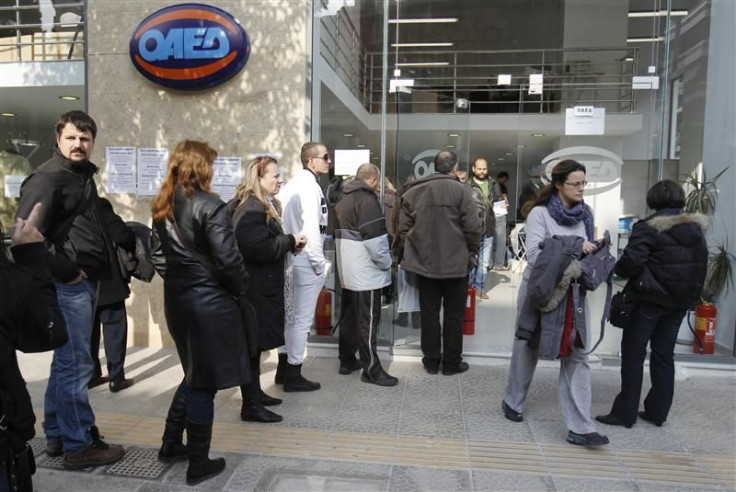Greeks Pack Off To Germany In Droves

Thalia Paraskeva, 24, was getting increasingly desperate. Equipped with a degree in graphic design from Athens, she was temping, waiting tables and juggling odd jobs in Greece to make ends meet even as she was looking for better work. Her job search didn't do more than bring a fresh wave of frustration.
One day, something snapped inside her. Heeding the advice of friends and relatives who spoke of "Germania" as a promising destination that offered happiness, she booked a ticket to Berlin and swiftly packed some dresses, a jacket, a pair of snug boots and a Greek-German dictionary before boarding the plane. Anything is better than Athens, she told German magazine Der Spiegel in an interview.
Paraskeva is among thousands of skilled and qualified Greek professionals, who are fleeing to Germany as their homeland flounders in an economic tailspin and a vicious circle of job scarcity and austerity cuts.
According to Germany's federal statistical office, the number of Greeks who moved to Europe's financial powerhouse rose by 25,300, or 90 percent, last year, bringing the net number of German Greeks to nearly 400,000. That's almost double what it was in 2010.
While more than 50 percent of young Greeks languish without work, Germany currently has 500,000 job openings, including an estimated 70,000 unfilled engineering vacancies, according to reports from companies. National unemployment in Greece remains sky-high at 22.5 percent, according to the latest data from Eurostat, the European Union's statistical agency.
German unemployment has been shrinking unswervingly in recent years, despite the ongoing turmoil. Its national rate, at 5.4 percent last month, is among the lowest in the euro zone.
Germany and Greece share a blow-hot-blow-cold relationship. A German tabloid newspaper, BILD depicted Greeks as "lazy". Greek newspapers have been spewing out cartoons portraying the Germans as Nazi propagandists and megalomaniac euro zone imperialists "who will allow their debtors to bleed to death". Der Spiegel reported.
Nevertheless, Germany remains an attractive option for job hunters because it has relaxed its cross-border employment regulations for European Union member states.
Germany has also becoming home to an increasing number of immigrants from other recession-steeped southern European countries. Official statistics show a rise of 52 percent from Spain, 28 percent from Portugal and 23 percent from Italy, last year.
Germany stands to benefit from immigration because it has been facing a severe shortage of skills. The German Association of Engineers estimates that the job market could be slammed with losses of up to €7 billion ($10 billion) because of understaffed production facilities, manufacturing delays or compulsions to move production activities overseas to bridge the skills gap.
Many Greeks are presently moving to German cities, with Berlin being the most eye-catching choice. Public hospitals, and private medical clinics point out that rural districts offer a fresh suite of opportunities in the health care sector, where trained and specialized personnel are needed. German health care practitioners are eyeing the southern European labor market to fill vacant slots. Their job advertisements have become increasingly innovative too.
"We've already sent out tweets in Spanish to advertise openings at our clinic," Karl Horn, a staff manager at the Rheinhessen Clinic in Alzey, a quaint town in the Rhineland-Palatinate state of West Germany, told CNBC in an interview.
© Copyright IBTimes 2025. All rights reserved.





















